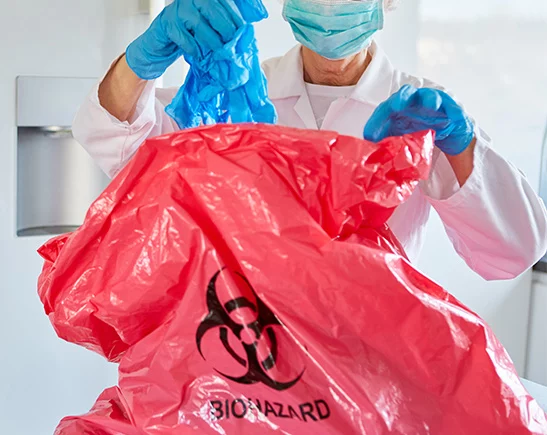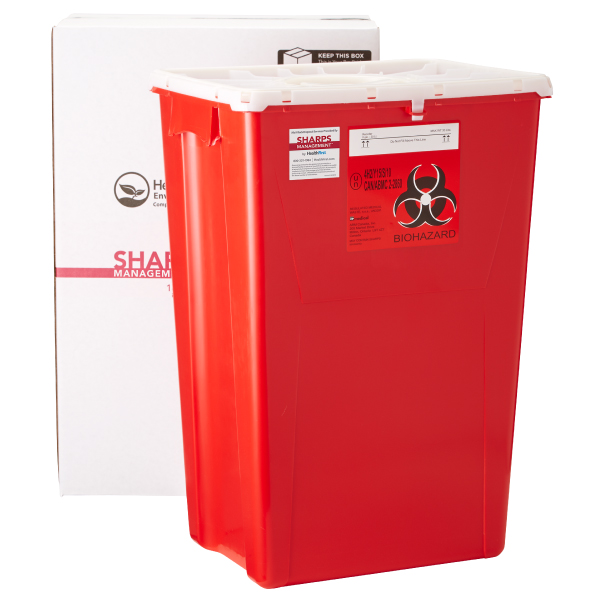Ease at Your Front Door: Finding Reliable Medical Waste Removal Near Me
Recognizing the Different Kinds Of Waste Disposal Techniques
In the realm of waste administration, the range of disposal methods readily available today is large and varied, each method serving an unique function in dealing with the challenge of waste disposal. click here. From recycling techniques that intend to give brand-new life to materials, to the elaborate processes of unsafe waste monitoring, the landscape of waste disposal is complicated yet essential for environmental sustainability. Understanding the nuances of these various techniques not only clarifies the value of responsible waste administration but also motivates us to reconsider our technique in the direction of waste disposal in a swiftly advancing world

Recycling Approaches
Recycling techniques are crucial for lasting waste administration techniques in both industrial and household settings. medical waste removal near me. By carrying out effective recycling approaches, a significant amount of waste can be drawn away from land fills, preserving natural resources and lowering the ecological effect of production processes
In houses, curbside recycling programs play a crucial role in motivating homes to separate recyclable products from general waste. Materials such as paper, plastics, glass, and metals can be arranged and gathered for handling into new items, lowering the need for resources and energy-intensive production processes.
Industrial centers additionally rely upon recycling methods to lessen waste generation and promote a circular economy. By carrying out closed-loop systems, businesses can recycle materials within their production processes, minimizing costs and ecological impact. medical waste removal service. In addition, commercial recycling programs typically include partnerships with specialized recycling facilities to make certain that products are appropriately sorted, refined, and reintegrated into the supply chain
Composting Techniques

Aerated static pile composting includes blending natural waste products in a huge pile and consistently transforming it to make certain correct aeration. This method is reliable for massive composting operations. On the various other hand, vermicomposting makes use of earthworms to damage down natural issue into nutrient-rich spreadings. This technique is well-suited for smaller-scale operations and houses.
In-vessel composting involves placing organic waste in a closed container with regulated problems for temperature and oygenation. This technique works for handling food waste in metropolitan locations. Finally, windrow composting includes creating long rows of natural waste and on a regular basis transforming them to promote disintegration. This method is typically utilized in agricultural settings.
Garbage Dump Disposal
Landfill disposal is a typically used approach for managing waste that can not be reused or composted. Methane gas, a result of breaking down organic waste in landfills, is usually accumulated and utilized as a resource of renewable power. Initiatives to reduce dependence on land fills include promoting waste reduction, reusing, and discovering alternate waste disposal methods to reduce the environmental impact connected with standard landfill disposal methods.

Waste-to-Energy Incineration
Incineration of waste for power generation is an approach progressively being thought about as an option to traditional landfill disposal techniques. Waste-to-energy incineration entails the combustion of waste materials at high temperatures, generally in specialized centers created to create electricity or heat via the process - click here. This technique not only decreases the volume of waste that would otherwise be destined for landfills but likewise uses the warm produced during incineration to develop energy
Among the vital advantages of waste-to-energy incineration is its capability to generate electricity while lessening the environmental impact compared to traditional land fill disposal techniques. By converting waste right into power, this method helps in decreasing greenhouse gas discharges and reliance on fossil gas for power generation. In addition, waste-to-energy centers are furnished with advanced air contamination control technologies to minimize possible toxic wastes launched during the burning procedure.
Hazardous Waste Administration

Considering the essential relevance of liable waste administration practices, particularly in the world of environmental sustainability, the focus now moves towards the complex domain of Hazardous Waste Management. Harmful waste poses significant risks to both human health and the setting, necessitating specialized handling and disposal techniques. Typical examples of contaminated materials include chemicals, batteries, chemicals, and digital waste.
Harmful Waste Management entails the recognition, collection, transportation, therapy, and disposal of materials regarded possibly dangerous or unsafe. This process calls for adherence to stringent regulations and standards to mitigate damaging effect on ecosystems and public wellness. Various approaches are employed in handling hazardous waste, consisting of recycling, safe landfills, encapsulation, and chemical treatment.
Correct Contaminated Materials Monitoring is essential for protecting against contamination of soil, water resources, and air contamination. It is vital for sectors, laboratories, health care centers, and other generators of harmful waste to apply robust administration approaches, training programs, and emergency action intends to ensure the safe handling and disposal of these products. Failure to handle unsafe waste appropriately can have far-reaching repercussions, emphasizing the importance of accountable and attentive techniques in this field.
Verdict
In conclusion, waste disposal techniques play a crucial duty in handling and lessening the effect of waste on the environment. It is important for people and sectors to recognize the various waste disposal methods available and choose the most ideal technique for sustainable waste management.
In the world of waste administration, the array of disposal strategies offered today is large and differed, each approach serving a distinct function in resolving the challenge of waste disposal. click here. From recycling approaches that intend to give new life to materials, to the elaborate processes of unsafe waste monitoring, the landscape of waste disposal is intricate yet critical for environmental sustainability. Comprehending the nuances of these various methods not only loses light on the significance of responsible waste management but likewise prompts us to reassess our technique towards waste disposal in a swiftly developing globe
Efforts to reduce dependence on landfills consist of promoting waste decrease, recycling, and checking out alternative waste disposal techniques to minimize the ecological footprint connected with traditional garbage dump disposal practices.
It is crucial special info for sectors and individuals to comprehend the different waste disposal methods readily available and select the most ideal method for lasting waste monitoring.